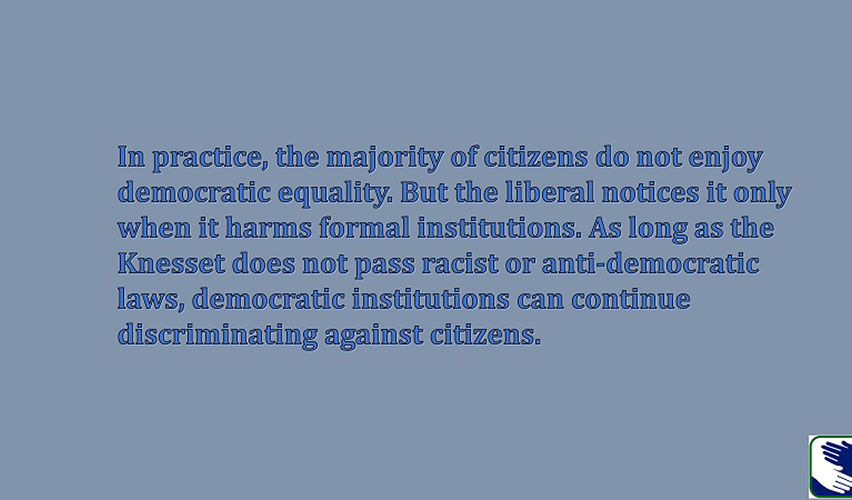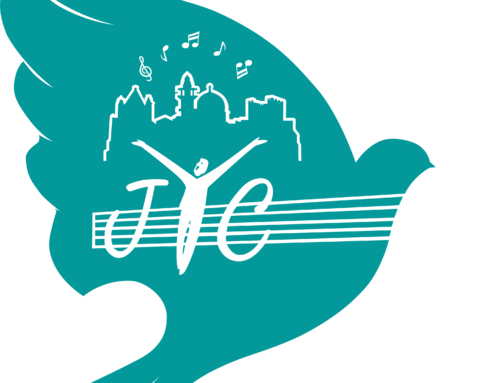In “Zeev Sternhell’s Fetishist Democracy” published in Haoketz (August 13, 2016) Kfir Cohen argues that liberals fail when they discuss the Right’s assault on democracy.
Israel was never a liberal state
Tribalism and hostility to liberal democracy, which we tend to identify with the Right, the religious and often with Mizrahim, were inherent to Zionism and to certain entities that call themselves Left. Since its birth, Zionism has always been tribal, irrational and particularistic. Since 1933 and later in the state, Zionism was a one-party movement. Mapai’s unchallenged rule over the economic, military, education, academic and the legal spheres – was not unlike authoritarian states in Europe.
If Israel has never been a liberal, what’s the new threat on Israel’s democracy?
Liberals view democracy through its formal institutions: separation of powers, freedom of the press, autonomy of the judicial, legal equality for all citizens, free elections, etc. Thus, a threat to democracy is a threat to its institutions. What is new today is a threat to Israel’s democratic institutions, for example, limiting freedom of speech, narrowing steps of the Supreme Court, etc.
Cohen notes that there are reasons for concern about the Right’s attack on democracy, but sorely missing is an understanding of the endemic obstacles of indirect power embedded in democratic structures. The Liberals’ failure becomes clear when we realize that they believe the democracy and equality exist when the institutions are unthreatened.
For example, when the Knesset passes a law that allows residents to prevent citizens (i.e. Arabs) to build a house in a certain community due to “the candidate’s incompatibility to the social fabric of the community.” Here is a violation of formal equality that has compromised democracy. Formal equality means that any citizen has a right to buy a house anywhere. We’ll call it “freedom of ownership.” Now let’s take another example and ask how can we understand this freedom, when certain citizens are prohibited to live in Tel-Aviv because housing is too expensive. The formal law guarantees them the right to “freedom of real estate,” in reality they cannot exercise this right. There is no direct power to prevent them from living anywhere they choose, there is however an indirect power that is doing precisely that.”
We are so used to thinking that this inequality (which concerns millions of people) is natural, that we don’t realize that it violates the principle of democracy and freedom. You may argue that we should rephrase freedom of ownership as: a citizen has the right to live where he wishes as long as s/he can afford it.” OK. This means: “a citizen has the right to live where he wishes so long as s/he is rich.” How is this sentence different from: “a citizen the right to live where he wants as long as s/he is a Jew”? Why does the first sentence make perfect sense, while the other makes us think of fascism and the end of the world?
Cohen offers other examples, “in democracy, all citizens have the right to equal access to education. In reality, however, 50% of Israeli youth 17 years of age do not graduate high school. In democracy, higher education is open to all, yet effectively, if I am not mistaken only a quarter, or third of citizens have a B.A. In democracy, citizens are entitled to equal pay for equal work, in reality men earn more than women for the same work. We can go on piling examples but the underlying principle is clear… the liberals however notices failings of democracy only when formal institutions are attacked.
Let’s rephrase the liberal logical failure: In practice, the majority of citizens do not enjoy the democratic equality. But the liberal notices it only when it harms formal institutions. As long as the Knesset does not pass racist or anti-democratic laws, democratic institutions can continue discriminating against citizens.
For liberals, democracy does not have to exist in the entire political space, but only in those spaces that embody it allegorically (Knesset, the court, journalism).
Translated by Ayala Emmett and Maya Haber






Around 100 years ago. the famous French author Anatole France said: “In its majestic equality, the law forbids rich and poor alike to sleep under bridges, beg in the streets and steal loaves of bread.”
Yonathan has it right. Classically this is called the difference between “liberal democracy” and “social democracy” and has been with us since the French Revolution and Babeuf’s “Manifesto of the Equals.” Sternhell, of course, knows all this.
Sometimes. It depends on the pretoher/pasacr. I shared this one with the preacher and the children's minister. Usually, folks just don't know what to do with a poem that was written for them. But I figure their puzzlement shouldn't stop me from writing them. Sometimes, it stops me from sharing. I don't want these to be about me.
Hey. Same cool website!! Guy .. Exquisite .. Amazing .. I will bookmark your website and obtain the feeds additionally…I’m happy to attain numerous effective in sequence right now within the article. Show appreciation you for sharing…